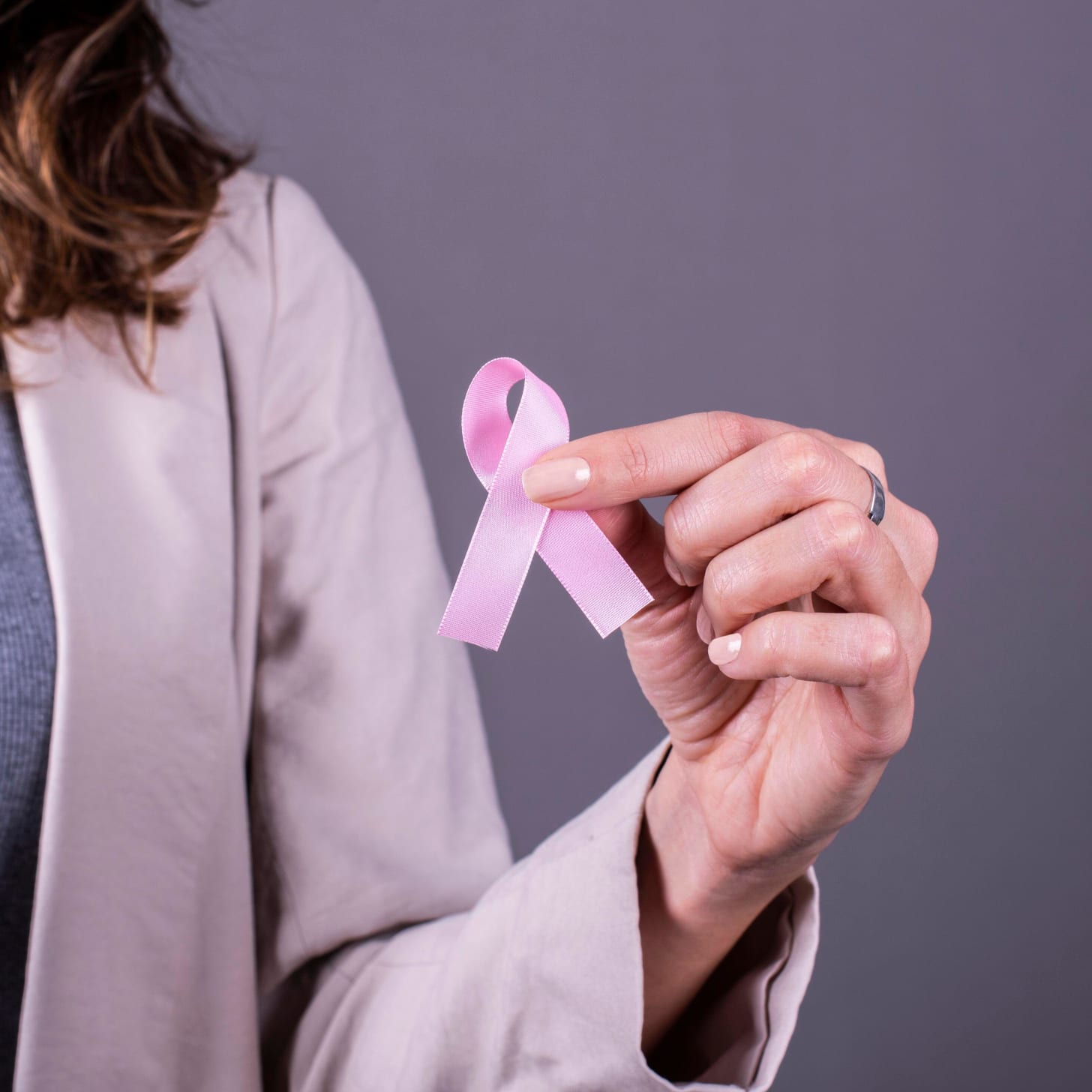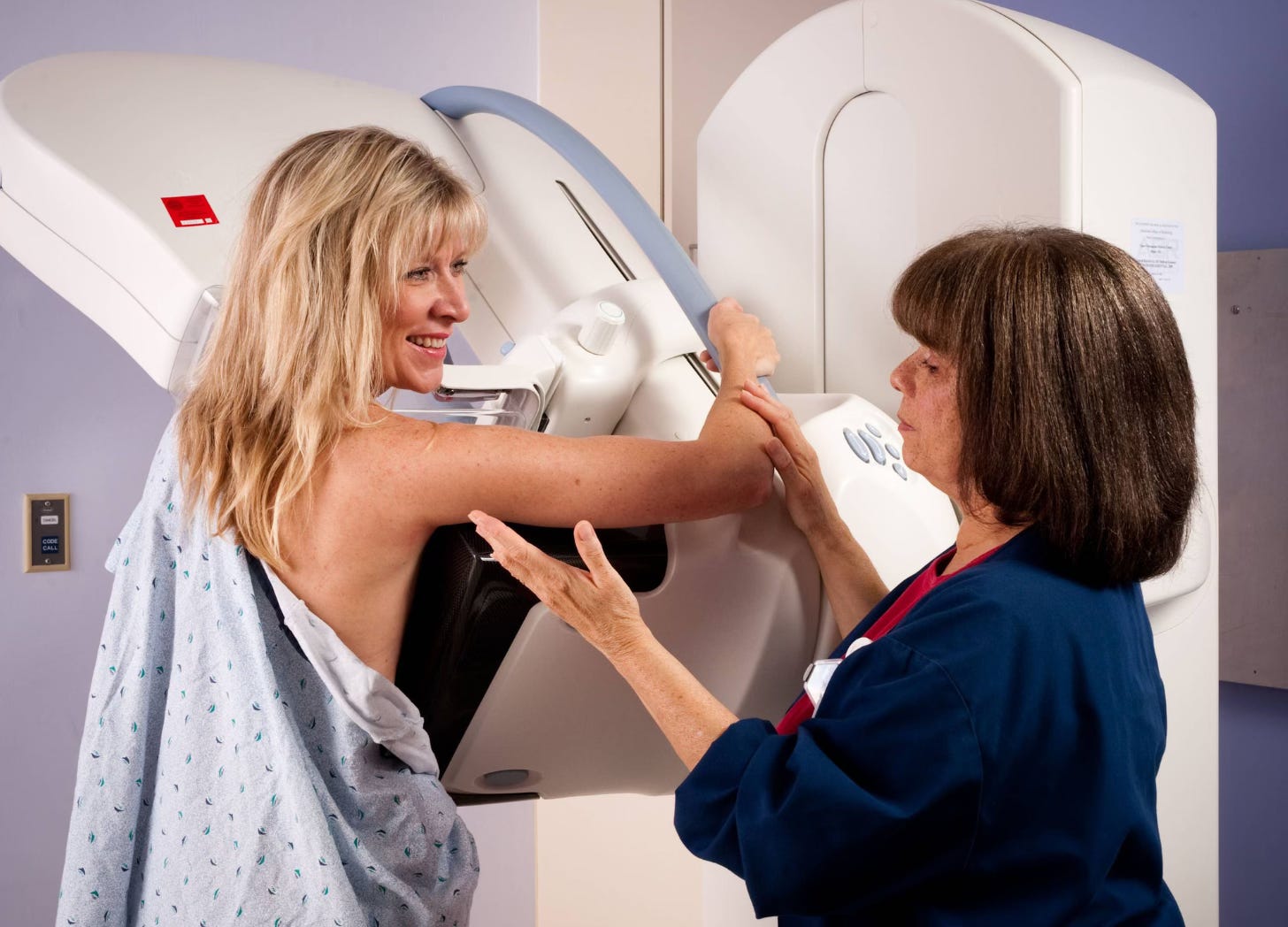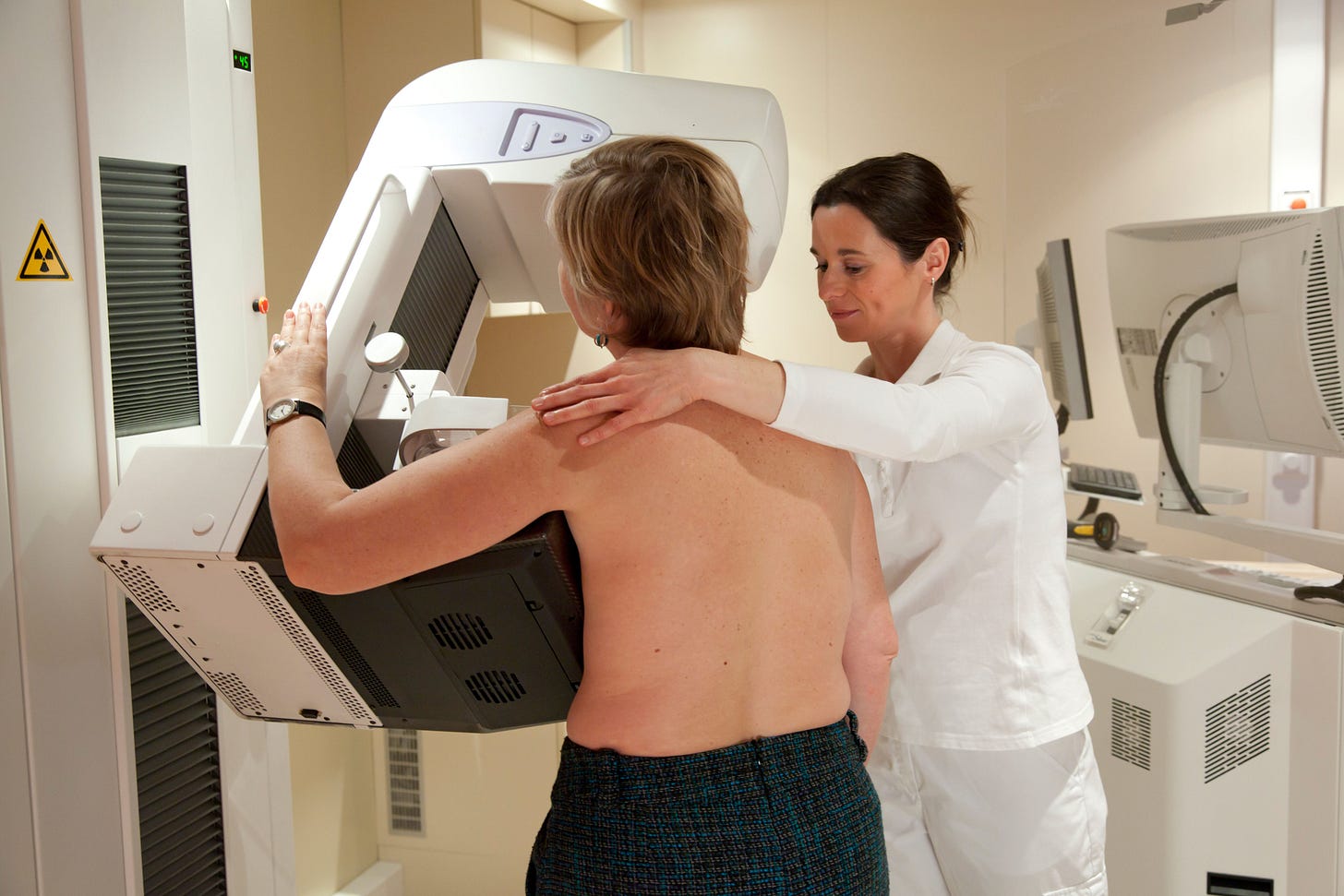This is what happens at a breast cancer screening
It is a relatively quick and stress-free process.
An alarm has been raised after new NHS data in the UK found that more than two million eligible women have not attended a breast cancer screening appointment in the past three years.
Data analysed by NHS England showed only 8.59 million breast-screening appointments were attended within six months between 2018/19 and 2022/23 despite the fact 13.05 million invitations were sent out to women aged between 50 and 71.
NHS England is now urging eligible women to attend their appointments.
Bu what actually happens at a breast screening appointment? And why is it important to attend them?

What is a breast cancer screening?
“A screening is usually done by one or two female mammographers and can pick up breast cancer using a mammogram X-ray before there are any signs and symptoms,” explains Rachel Rawson, lead cancer nurse at virtual cancer clinic Perci Health. “The sooner breast cancer is diagnosed the more effective the treatment can be.”
What happens at the appointment?
The appointment should take about 30 minutes from start to finish.
“You’ll first be asked some brief questions about your health and your family history and then be asked to undress your top half,” explains Lester Barr, consultant breast surgeon and founder of the charity Prevent Breast Cancer. “It’s a good idea to wear trousers or a skirt rather than a dress, so you don’t feel too exposed and you can also ask for a chaperone if you’d like one.
“Your breast imaging specialist will use a mammography machine to take pictures of the tissue inside your breasts.
Related Articles
“Two X-ray images of each breast are taken, one from the front and one from the top, and to get a clear picture the breast tissue will be compressed within a mammography machine.
“This can be uncomfortable, but it is only for a very short while as the images are taken.”
You won’t get your results there and then, as each picture is reviewed by two specialists, he adds.
What age are you invited to your first screening appointment?
“Finding these cancers before they present symptoms usually means less aggressive treatment and a higher chance of going back to a completely normal life after cancer.”
Lester Barr, consultant breast surgeon and founder of the charity Prevent Breast Cancer
“If you’re a woman aged 50 up to your 71st birthday, you’ll be automatically invited for breast screening through your GP practice every three years,” highlights Rawson. “You may not be exactly 50 when you are called but you will have a screening before you are 53.”
However, if you are under 50 and are worried, you might be able to get one earlier.
“If you are concerned about your family history risk you can talk to your GP about this,” says Rawson.
Why is it important is to go to regular breast cancer screenings?
“Routine mammograms help detect cancers in breast tissue that might not otherwise be found, either because they’re too small to be felt or because they are deep within the breast,” explains Barr. “Finding these cancers before they present symptoms usually means less aggressive treatment and a higher chance of going back to a completely normal life after cancer.”
What happens after your appointment?
“You’ll get a letter in post which will either tell you you are fine and don’t need to come again for three years, or it might say that you need a repeat screen,” informs Barr. “It’s natural to worry if you get a letter like this, but it doesn’t mean that you definitely have cancer – just that something needs to be double checked.
“If a mammogram does find a lump, you’ll be referred for more tests which might include a biopsy.”








